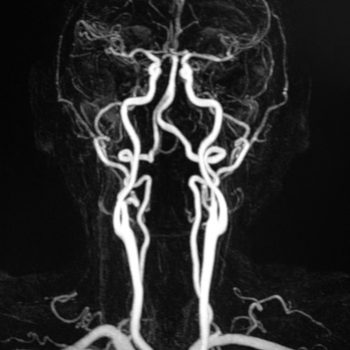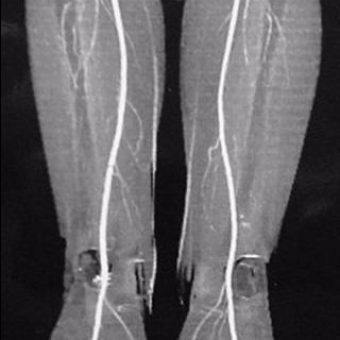Vascular MRI
When it comes to providing medical imaging and working with patients we have made commitments to providing an exceptionally comprehensive experience while getting exceptional images.
Vascular MRI of Arteries (MRA)
MRA (Magnetic Resonance Angiography):
A type of MRI that evaluates the arteries and blood flow within them which are the vessels that carry blood away from the heart. This imaging is performed without catheters or radiation which makes it more safe and effective. This imaging uses a magnetic field with a computer to produce images of the vessels. This allows the doctor to evaluate the arteries for various diseases and pathologies. At our facility we use a high-field, open MRI that combines quality and comfort to provide a great experience for patients and provides excellent diagnostic images at an amazing price.
An MRA is used to look at the arteries for obstructions or narrowing which is called a stenosis. A stenosis is a build-up of cholesterol deposits called plaque within the walls of the arteries. Stenosis can result in diminished flow to the organs, arms or legs, or can result in a stroke if it builds up in the neck. An MRA also ordered before certain surgeries such as before a coronary bypass.

Vascular MRA Areas Looked At:
- Carotid arteries (neck)
- Internal carotid artery
- Circle of Willis (brain)
- Descending Aorta
- Aortic Arch
- Heart
- Arms and hands
- Legs and feet
- Kidney arteries
- Pelvic Arteries
Vascular MRA Reasons:
- Transient Ischemic Attack (TIA)
- Sudden weakness or numbness
- Confusion or trouble speaking
- Peripheral arterial disease
- Congenital abnormalities
- Arteriovenous malformation
- Recent Fall
- Lack of Balance
- Recent Stroke
- Atherosclerosis
- Headache
- Blurry vision
- Patient Having Diabetes
- High blood pressure
- Non-healing ulcers
- Dissection
- Aneurysm
- Claudication
- Non-healing ulcers
- Kidney failure

Vascular MRI of Veins (MRV):
MRV (Magnetic Resonance Venography):
MRV is similar to an MRA except it is looking at the veins which carry blood back to the heart. The main purpose of this exam is to look for blood clots which is a buildup of red blood cells and platelets. As a result, this can cause an obstruction or a piece can break off and go to the lungs causing a pulmonary embolism.
Vascular MRV Areas Looked At:
- Arms or hands
- Legs or feet
- Heart
- Brain
- Abdomen
- Neck
- Lungs
- Portal vein
Vascular MRV Reasons:
- Recent IV placement
- Pulmonary embolism
- Shortness of breath
- History of blood clots
- Factor 5 Leiden
- Leg or arm pain
- Bruising
- Swelling
- Edema
- Trauma
How We Work?
Our technologists will provide the best experience possible by ensuring you are comfortable and prepared for your examination. They will be with you every step of the way while getting the diagnostic images you and your doctor need.
Book an Appointment
Prescreening
Getting Ready
During The MRI Scan
Feel Free To Contact Our Friendly Reception Staff With Any Medical Enquiry.

Affordable MRI Service
(763)244-8020



Frequently
Asked Questions
Our MRI machine has an open design to make patients as comfortable as possible. Our technologists are experienced and caring and will talk you through the exam and make sure you are as comfortable as possible. We can also provide headphones and you always have the option to hit a a call button if you need anything.
MRI’s can take between 15 to 25 minutes depending on the area being scanned and based on the number of images being taken. When you schedule with us we can inform you of how long your scan will take.
An IV is only needed if the MRI is ordered with an IV contrast which is needed if the radiologist recommends it or if there is a clinical indication for it. Otherwise the only other time is if a patient is getting an IV sedation because of anxiety with an MRI Scan.
Before your MRI appointment, you can follow your daily routine and meal plan as normal and take prescribed medication. Make sure all metal is removed from the body. This includes piercing, jewelry, etc. The MRI technologist will show you to a private changing room that contains a secure locker so you personal belongings are kept safe. You will be given a pair of shorts and a tee shirt so that you will be covered and comfortable.
In most cases patients with metal implants such as hip or knee replacements can get an MRI. However, if a patient has metal clips or a pacemaker then they can’t receive an MRI. Our team will be sure to evaluate you before your MRI and you can always give us a call if you have questions.
Book An Appointment
Please feel welcome to contact our friendly reception staff with any general or medical enquiry. Our doctors will receive or return any urgent calls.